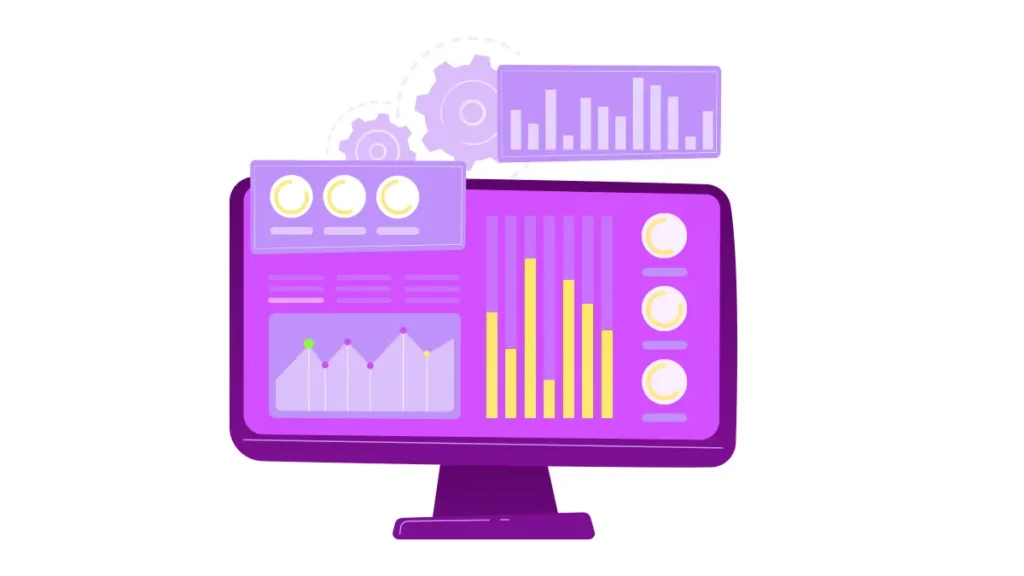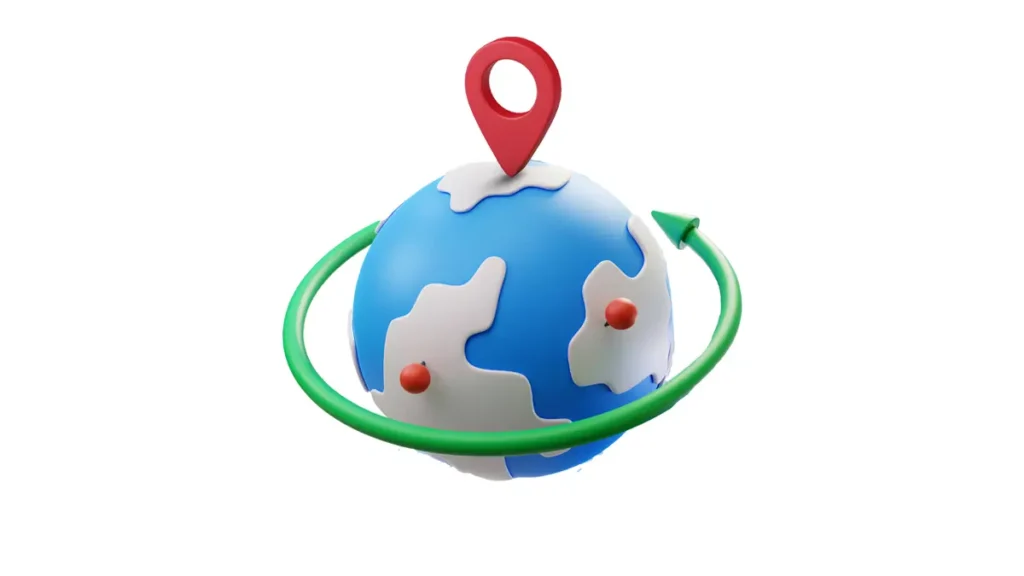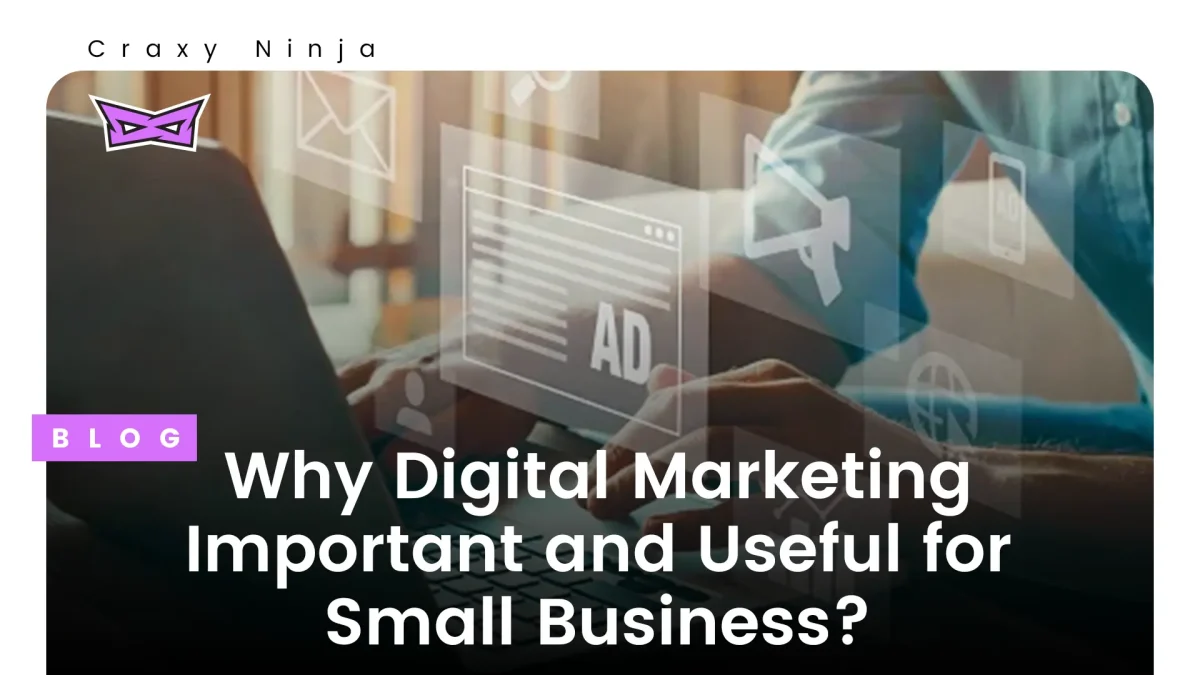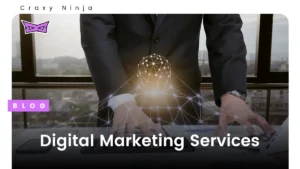When small businesses start their journey, their primary concern often revolves around attracting the initial wave of customers.
In this early stage, they may lean on conventional advertising methods like print advertisements, promotional mailers, or even outdoor advertising.
These businesses may hold the belief that, given their quality products or services, it’s merely a question of time until customers discover them.
But! A world where technology evolves at lightning speed and the internet connects us all, the concept of marketing has also undergone a remarkable transformation.
Gone are the days when small businesses relied solely on traditional marketing methods like flyers, billboards, and newspaper ads to reach their target audience.
Today, the game has shifted towards the digital era, and small businesses have a powerful tool at their disposal – digital marketing. Let’s break down the key benefits, strategies, and how this dynamic approach can level the playing field, helping small businesses thrive in the competitive landscape of the 21st century.
The Digital Landscape
Before getting into the specifics of why digital marketing is indispensable for small businesses, let’s paint a picture of the digital landscape. The internet has become an integral part of our lives, and it’s the place where people spend a significant amount of their time.

Accessibility
The internet is accessible to nearly everyone today, whether they are at home, work, or on the go. This accessibility provides small businesses with a global platform to reach their audience.
Cost-Efficiency
Digital marketing is often more cost-effective than traditional methods. Small businesses with limited budgets can tap into the power of online marketing without breaking the bank.
Data and Insights
Digital marketing provides invaluable data and insights that can be used to refine marketing strategies. Small businesses can make data-driven decisions to optimize their campaigns.
Now, have a look at why digital marketing is a game-changer for small businesses:
Targeted Reach
One of the most significant advantages of digital marketing is the ability to reach a highly targeted audience. Through tools like social media advertising, email marketing, and search engine optimization (SEO), small businesses can define their ideal customer and create content that speaks directly to them. This ensures that marketing efforts are not wasted on people who are unlikely to be interested in their products or services.
For instance, a local bakery can use Facebook ads to target users in their vicinity, ensuring that their promotions are seen by potential customers who are actually within driving distance.
Cost-Effective
Small businesses often operate on tight budgets, and they need to make every penny count. Digital marketing is a cost-effective way to promote products or services compared to traditional advertising methods like TV commercials or print ads. For example, pay-per-click (PPC) advertising allows businesses to set a budget and only pay when someone clicks on their ad, making it a highly efficient way to manage marketing expenses.
Moreover, the return on investment (ROI) for digital marketing campaigns can be tracked and analyzed in real-time. This transparency helps small businesses identify what works and what doesn’t, allowing them to allocate their budget more effectively.
Improved Visibility
In the vast ocean of the internet, small businesses can often feel like tiny islands struggling to get noticed. Digital marketing equips them with the tools to improve their visibility and stand out in the crowded marketplace. Search engine optimization (SEO) is a prime example of this, as it allows businesses to optimize their website and content to appear at the top of search engine results pages when users search for relevant keywords.
By ranking higher in search results, small businesses can attract more organic traffic, ultimately increasing their chances of converting visitors into customers. Additionally, creating engaging and shareable content can help businesses gain exposure through social media and word-of-mouth, further boosting their visibility.
Build and Engage with an Online Community
Digital marketing isn’t just about promoting products; it’s about building relationships with customers. Small businesses can use social media platforms, email marketing, and blogs to engage with their audience on a personal level. This interaction helps establish trust and loyalty, essential factors for long-term success.
For example, a small artisanal coffee shop can use Instagram to showcase its unique blends, engage with customers through comments and direct messages, and even host online events or contests to create a sense of community around their brand.
Adaptability and Flexibility
The digital landscape is dynamic, with new technologies and platforms emerging regularly. Small businesses can adapt to these changes quickly and easily, ensuring that their marketing strategies remain relevant. Whether it’s embracing a new social media platform, adjusting advertising strategies, or updating website content, digital marketing allows for flexibility and agility.
This adaptability is vital, especially during unexpected events such as a global pandemic, where businesses needed to shift their focus from physical storefronts to online sales and delivery.

Analytics and Insights
Data is the lifeblood of digital marketing. Small businesses can access a wealth of data that provides insights into consumer behavior, preferences, and the performance of marketing campaigns. These insights allow businesses to make informed decisions and refine their strategies for better results.
Tools like Google Analytics, social media analytics, and email marketing metrics provide a comprehensive view of how a campaign is performing. Small businesses can see which content is resonating with their audience, which channels are driving the most traffic, and which campaigns are generating the most leads or sales.

Competition Leveling
Digital marketing has a unique ability to level the playing field for small businesses. Online, it’s not always the largest budget that wins; it’s the most effective strategy. A well-executed digital marketing plan can help a small business compete with larger corporations and establish a strong online presence.

For example, a small family-owned boutique can create a compelling e-commerce website and use targeted advertising to reach a global audience, effectively competing with bigger fashion retailers.
Improved Customer Support
Digital marketing also extends to customer support. Small businesses can use various channels like social media, live chat on their websites, or email to provide quick and efficient support to their customers. This helps in building a positive reputation and customer satisfaction, which can lead to repeat business and positive word-of-mouth marketing.

Global Reach
Thanks to the internet, even the smallest of businesses can reach a global audience. With the right digital marketing strategies, a small local artisan can showcase their unique creations to the world. This global reach can open up new opportunities and revenue streams that were once unimaginable.

Digital marketing is not just a modern trend; it’s an essential tool for small businesses to thrive and compete in the digital age.
It offers a cost-effective way to reach a targeted audience, improve visibility, engage with customers, adapt to changes, access valuable data, level the playing field, and provide excellent customer support.
By embracing the digital landscape, small businesses can unlock their full potential and chart a path to success in an increasingly digital world. So, if you’re a small business owner, don’t miss out on the tremendous benefits that digital marketing has to offer.








